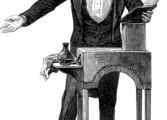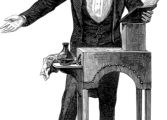Animal Farm by George Orwell is a timeless novel that continues to captivate readers with its allegorical portrayal of political systems and the abuse of power


Published in 1945, this satirical novella serves as a critical commentary on totalitarianism and the corruption it breeds. In this article, we will explore the significance of Animal Farm, its historical development, and its enduring relevance in contemporary society.
Animal Farm tells the story of a group of farm animals who overthrow their human oppressors and establish an egalitarian society based on the principles of Animalism. Initially, the animals unite under the leadership of the pigs, Snowball and Napoleon, with the goal of creating a utopian community where every animal is equal. However, as time progresses, the pigs gradually adopt human-like behavior, exploiting their power and imposing a totalitarian regime on the other animals.
One of the most important aspects to understand about Animal Farm is its allegorical nature. Orwell cleverly uses the animals and their actions to represent real-life figures and events. For instance, the character of Napoleon represents Joseph Stalin, while Snowball symbolizes Leon Trotsky. Through these representations, Orwell provides a scathing critique of the Soviet Union under Stalin’s rule, exposing the corrupting influence of power and the betrayal of revolutionary ideals.
Now, let’s delve into the historical development of Animal Farm and its reception over time. Orwell wrote the novel during World War II, inspired by his disillusionment with communism and the rise of totalitarian regimes. Initially, finding a publisher for Animal Farm proved to be challenging due to its controversial nature and its critique of the Soviet Union, which was an ally of the British during the war. However, once published, the novel garnered widespread acclaim for its powerful message and compelling storytelling.
Over the years, Animal Farm has become a literary classic, widely studied in schools and universities around the world. Its popularity can be attributed to its ability to resonate with readers of all ages, as it tackles universal themes of power, corruption, and the dangers of propaganda. In fact, Animal Farm’s relevance extends beyond its original context, serving as a cautionary tale about the potential abuse of power in any political system.
With its thought-provoking narrative and timeless themes, Animal Farm continues to attract new readers and spark discussions on the nature of governance and human behavior. It serves as a reminder of the importance of vigilance and critical thinking in the face of political manipulation.
In conclusion, Animal Farm by George Orwell remains a powerful work that exposes the flaws inherent in totalitarianism and warns against the dangers of absolute power. Its allegorical nature, historical significance, and enduring relevance make it a must-read for anyone interested in political philosophy and social critique. As readers delve into the world of Animal Farm, they are confronted with profound questions about the nature of power, injustice, and the struggle for freedom. Orwell’s masterpiece serves as a reminder that the fight for a more just and egalitarian society is a never-ending battle that warrants constant vigilance.
















































